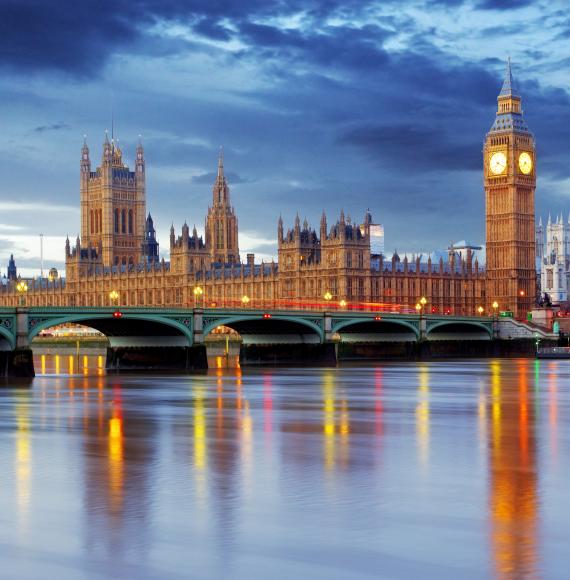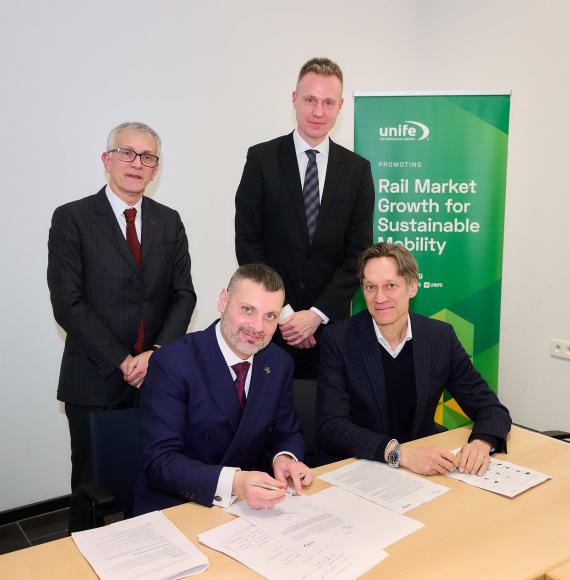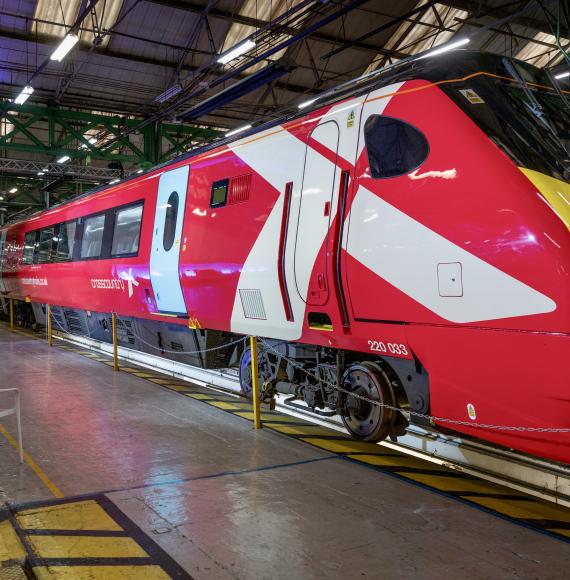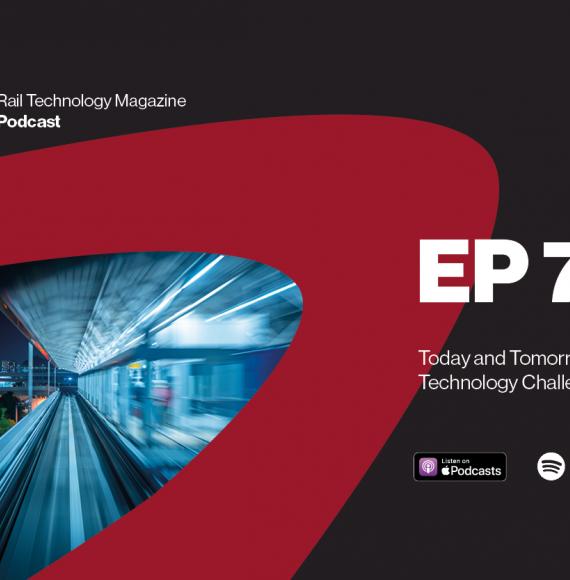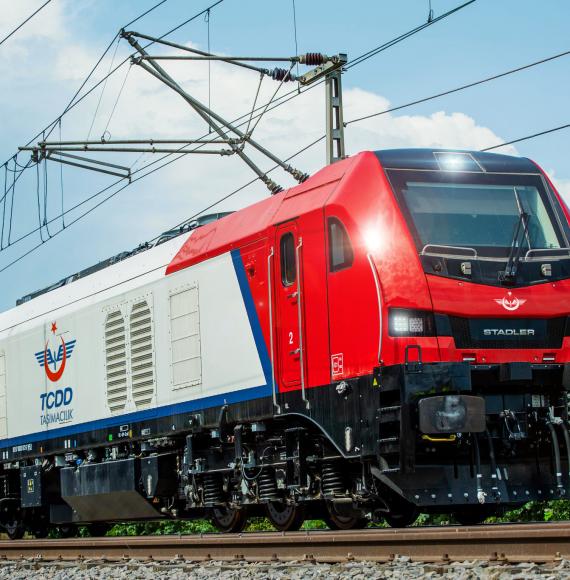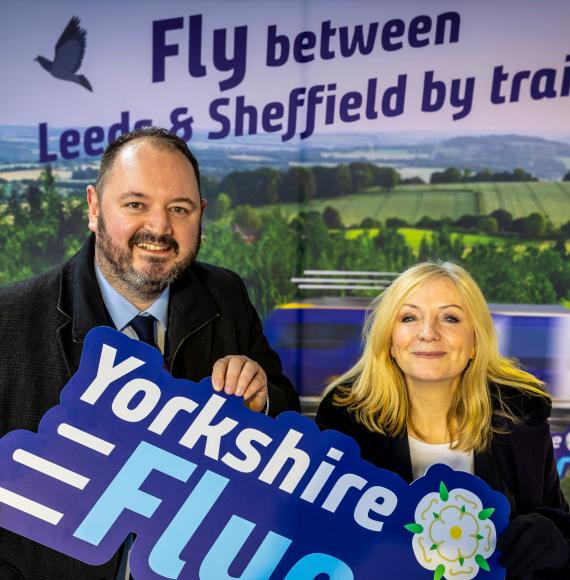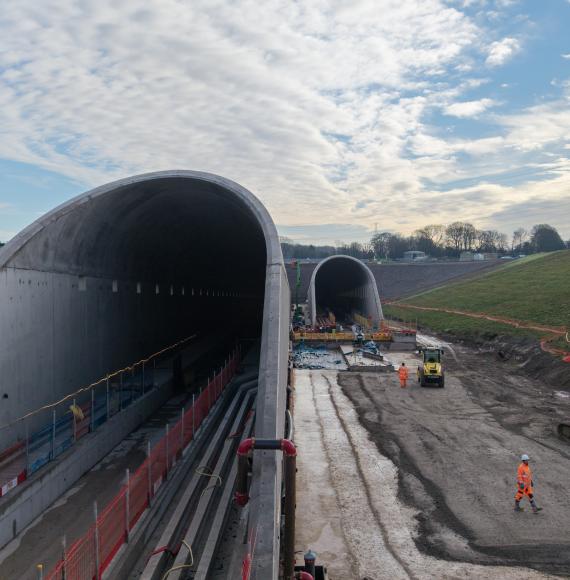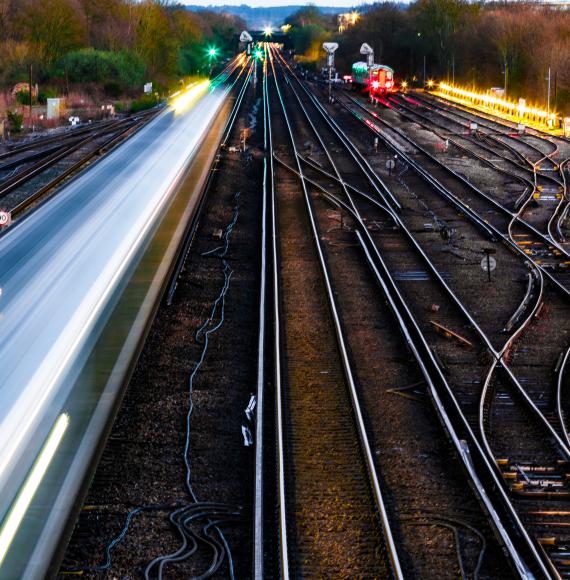In conversation with Tim Wood – the budget, post-Covid rail and the new infrastructure bank
With the recent announcement of the new annual budget by the Chancellor on the back of a government road map out of lockdown. There were always going to be interesting words that would follow the numbers presented in the budget.
We at Rail Technology Magazine decided to pick up the phone and talk to Northern Powerhouse Rail Director, Tim Wood.
With over 24 years’ experience in railway design and delivery, and having previously held two Rail Director positions in the private sector, we touched on the budget, the new infrastructure bank and what post-pandemic train services might look like in the next coming months.
Hi Tim, thank you very much joining us. In regard to the recent budget announcement by the Chancellor of Exchequer, there has been some good news of course, but there's also been some bad news and some disappointment throughout the industry, and there's definitely been some mixed feelings regarding the announcements.
First off, I wanted to discuss with you the good points around the budget announcements for the industry. So, one of them was obviously the creation of the UK first infrastructure bank, which is going to be in Leeds.
Plans announced in the budget could help rebalance the UK economy and bring much-needed investment to the North.
Bringing the treasury to Darlington and setting up the first UK infrastructure bank in Leeds are really welcome. These are measures that could unlock funding for the region’s unfit-for-purpose infrastructure, and crucially to funding decisions that would address the historic imbalances in the UK between the North and the South.
“What we must see now is funds channeled through these bodies at pace into essential capital projects, such as Northern Powerhouse Rail doing so would help kickstart and economic recovery and delivery”
What we must see now is funds channeled through these bodies at pace into essential capital projects, such as Northern Powerhouse Rail. Doing so would help kickstart an economic recovery and deliver a low carbon North. We are eagerly awaiting the publication of the Integrated Rail Plan, what we must see in that document is long-term commitment to investment in the North through delivery of HS2 and NPR in full.
Transport for the North (TfN) is calling on the government to be bold in its decision-making and to support the transformative solutions that the North’s civic and business leaders have identified.
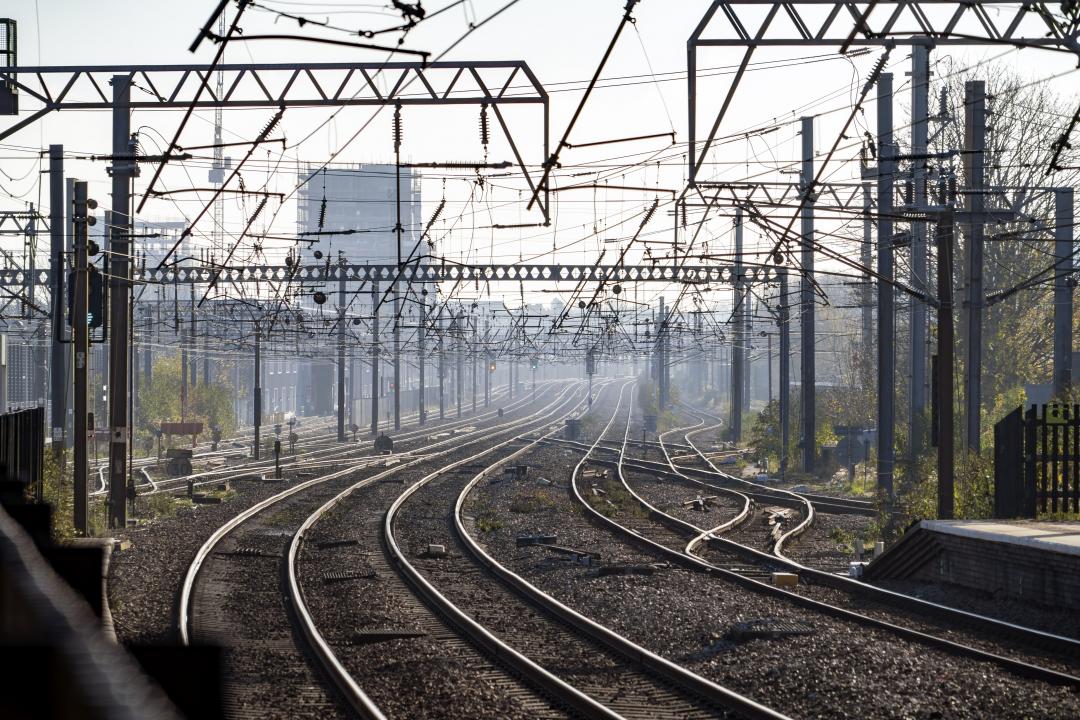
Another welcome announcement in the budget was commitment to freeports in Liverpool, the Humber and Teesside. What that does is place an even greater importance on the need for better transport access to these areas, particularly for rail links from east to west.
There were some really key points in the budget that would help the North unlock its true economic potential, and that will play a vital role in creating jobs and stimulating an economic recovery. What we must now see is the required commitment to transport infrastructure to accompany that, to really enable these places to thrive.
NPR and HS2 delivered in full will transform Darlington’s connectivity, for instance journeys to Manchester will be 34 minutes quicker than today, to Liverpool 37 minutes quicker. And travelling to London will be nearly an hour faster. Capacity will be revolutionised too, with more frequent services that provide additional longer trains with far more seating capacity.
The Chancellor’s commitments while welcome, only solve part of the problem if delivered in isolation. To truly put right the decades of underinvestment in the North, transformative solutions must be outlined in the Integrated Rail Plan.

It has been over 500 days since the Rail Network Enhancements pipeline was last published. There has been a recent urge for the Government to provide the rail sector with more visibility in the up-and-coming rail schemes. Has that been an issue as of recent for yourself?
“We need to make sure that we've got the right resources available at the right time to deliver these programs. And very much as a value for money proposition for the British taxpayer”
We need to make sure that we've got the right resources available at the right time to deliver these programs and very much as a value for money proposition for the British taxpayer.
Where I'm concerned is that currently today there is no electrification works going on in England. So those resources, what happens with them and how do we make sure that they still remain in the marketplace?
For instance, in one of our first key corridors is the electrification between Leeds and Hull. We need to make sure that the pipeline, when it does emerge, is very clear and concise, so people can make sure that experienced resources are available.
If you want to get the best production and the best rates for programmes as a client. You do need a very, very clear long term pipeline of work that the supply chain, educational establishments and clients are clear on.
Absolutely and everybody has to be clear for there to be some sense of direction. Do you have the confidence in the government to provide you the clarity taking the present conditions into consideration?
We are currently awaiting the publication of the Integrated Rail Plan, which we understand will be in the next 3 months. That is a really important document. It is something that we haven't been involved in, it's a government-led document, but what that hopefully will do is set out the plans for Northern Powerhouse Rail and how it integrates with other major rail schemes in the North and Midlands.
The integration of these mega rail programmes is a key question to be answered, so too is collaboration, in terms of how different organisations working together will deliver the railway interventions we need seamlessly. I think the key bit there is working collaboratively, something the Northern Powerhouse Rail programme exhibits with TfN, the Department for Transport (DfT), Network Rail, HS2 Ltd and local transport authorities working together to develop proposals.
At the request of the DfT, TfN has agreed to delay submitting NPR’s Strategic Outline business case until the publication of the IRP document comes out. Following this, we will look to submit our business case firstly to TfN’s board for approval and then subsequently to government for consideration.
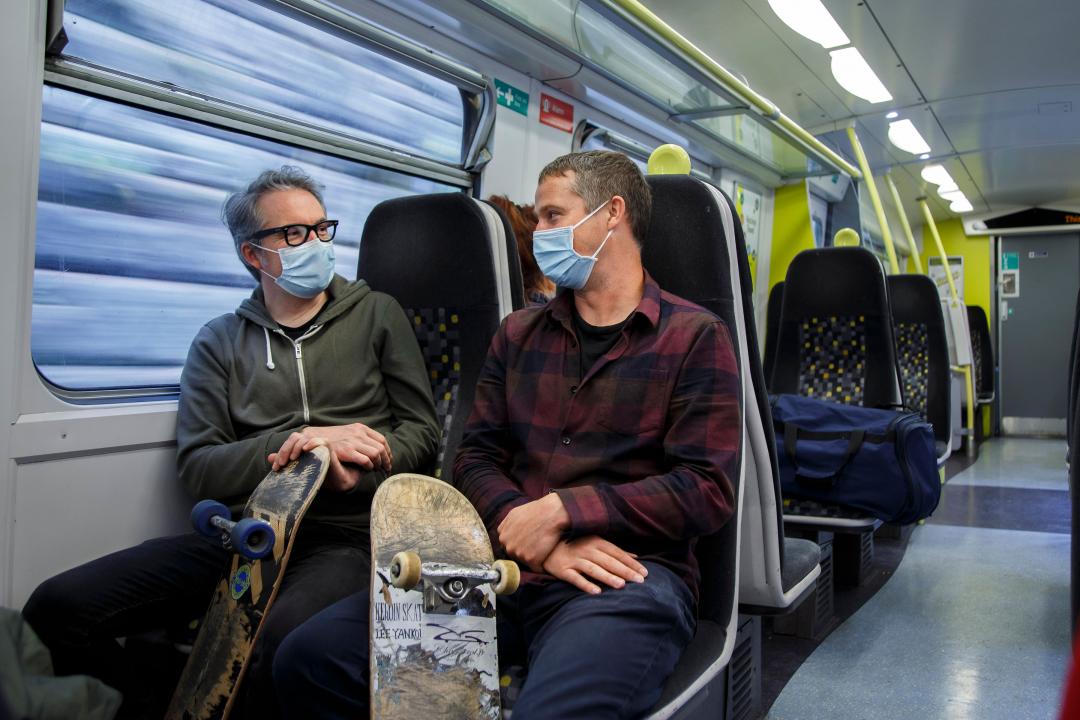
The prime minister has announced a roadmap out of lockdown, and former commuters and future commuters are going to be looking for a service that is going to be safe, healthy, hygienic, clean, and also reliable. Reinstalling that confidence into passengers. How do you see overcoming that in the long-term?
I don't think the railway has actually been any cleaner than it is now, from stations through to the trains that are running.
TfN’s strategic rail programme plays a key role in shaping and informing the fulfillment of rail related issues. It helps to shape the operational and future development of the classic rail network in the North, ensuring new programmes can fully optimise rail potential into and out of and across the region. This work - in partnership with the DfT and railway operators - will play a key role in helping drive rail recovery for the North and has played a pivotal role in the response to the pandemic.
The long-awaited publication of the Government-commissioned Williams Review will be also essential to rail’s recovery from the pandemic. It is critical that the findings are customer-centric, we need to deliver a value-for-money service, something that hasn’t been the case for many years here in the North for rail commuters.
It was fantastic to see news of flexible season tickets being introduced in the coming months, a great initiative that will give passengers more choice in when they travel, pivotal given the impact of the pandemic on working habits and in attracting commuters back to rail.
“But ultimately, what do passengers really want? Well, they want a seat”
But ultimately, what do passengers really what do they really want? Well, they want a seat.
They want the train to arrive on time and to leave on time. They want connectivity for their devices. In the 21st century I don't think that's too much to ask?
We've seen very much in the North of England after the 2018 timetable debacle, the timetable actually collapsed in the North. A lot of work went into making sure that those issues were resolved, with a particular focus around ensuring people came back onto the railways. Once this awful pandemic is over, services will increase and so too will the number of commuters, they need to have a reliable and resilient service.
Once programmes like Northern Powerhouse Rail, TransPennine Route Upgrade and HS2 are built, passengers will get that transformational capacity and connectivity.
“One prime example of the unfit-for-purpose rail service Northerners have endured for too long is Bradford to Leeds. The distance between the two cities is around eight miles, but it takes nearly 27 minutes to cover that distance. That is unacceptable for a City of some 540,000 residents.”
One prime example of the unfit-for-purpose rail service Northerners have endured for too long is Bradford to Leeds. The distance between the two cities is around eight miles, but it takes nearly 27 minutes to cover that distance. That is unacceptable for a City of some 540,000 residents.
Take Leeds to Manchester, two great cities that serve millions of rail passengers, that journey at best is about 49 minutes and prior to the pandemic you would be lucky to get a seat on that service at Peak times.
NPR would reduce that journey time down to 28 minutes and provide more frequent and larger trains with six trains per hour, that really opens up connectivity and agglomeration between these two economic centres in the North.
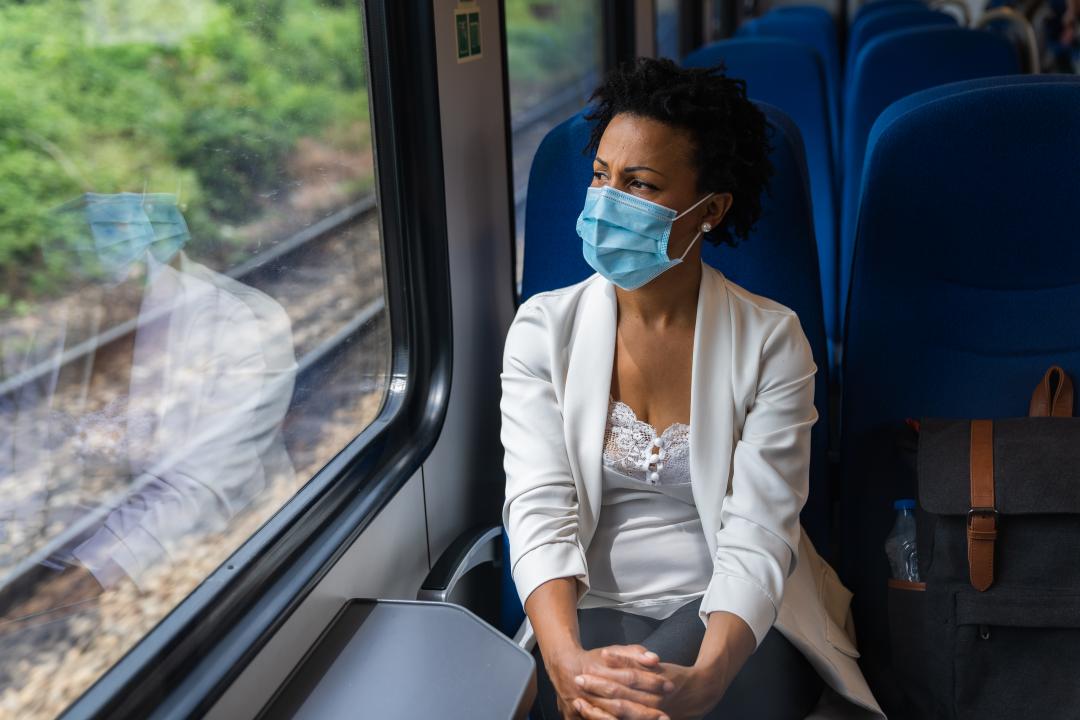
You've been touching on a lot of the logistical and infrastructure side of things, what about the social side of things. The general confidence of people getting back onto the trains, that's another obstacle. How do you look to go past that? Because for example, elderly people who have been using trains for many years, who might have been vaccinated, how do we encourage those groups to get back onto trains?
Humans like interaction with other humans. I think trains play a key role in bringing people together, actually. Whether they're going to their workplace or using it for a tourist destination, it is still the quickest and cleanest way to move around the North of England.
“There is going to be a timeframe, while we continue to live with the pandemic, where passenger numbers will remain low and coupled with social distancing guidance this will keep passenger numbers down as train capacity will be limited.”
But what we want to make sure is that as the future comes along, we have far better capacity and connectivity. The railways in the North have seen in the region of 194% growth in the last 20 years. We don't see that growth post-pandemic actually slowing down. Great public transport services will support and potentially speed up model shift out of fossil fueled vehicles and onto Rail.
There is going to be a timeframe, while we continue to live with the pandemic, where passenger numbers will remain low and coupled with social distancing guidance this will keep passenger numbers down as train capacity will be limited.
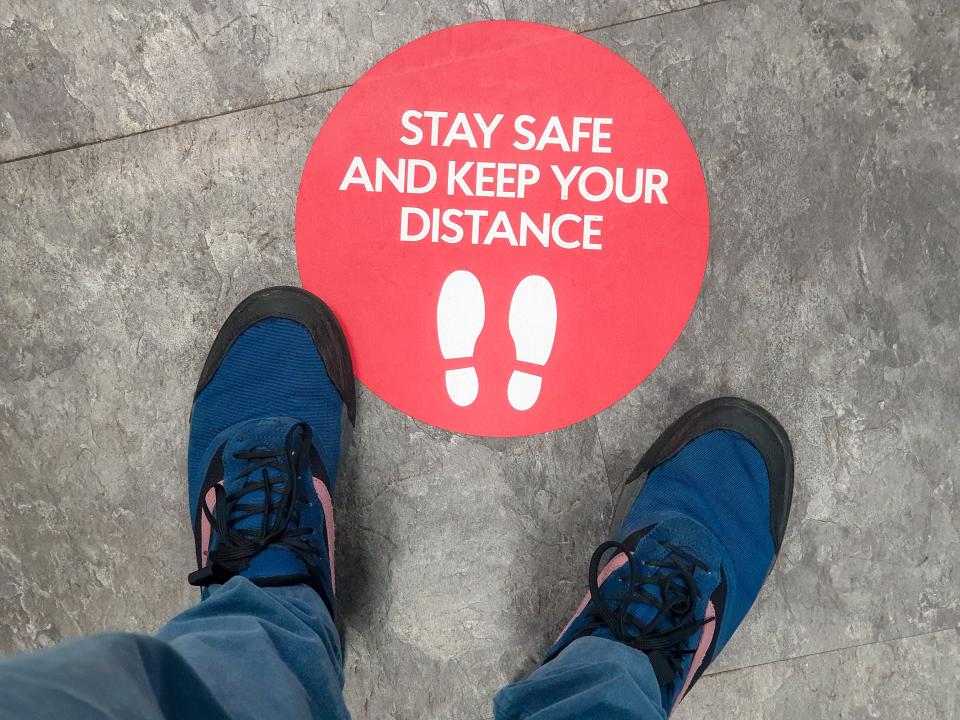
But demand and numbers will return to pre-Covid levels, I am confident of that. During previous economic downturns in the past we have similar reductions in rail passengers followed by growth, I do expect that again, however, given the number of unknowns it is difficult to put a specific time on.
It's key now that everybody keeps to the rules as the vaccination continues its rollout. When travelling by rail we need to ensure we remain sensible, continue to wear masks and abide by social distancing guidance until the Government informs us of any changes.
Absolutely, but there are definitely going to be furthermore some difficult questions that are going to have to be answered. For example, how is social distancing going to be maintained. How are we going to be able to maintain that?
Rail operators will be guided by the Government’s guidance, as they have been for the last 12-months. I anticipate that social distancing measures will continue to be implemented on trains until the Government is sure that public health is guaranteed.
Is the government going to be able to just roll out a plan to be implemented successfully for the safety of people to garner that confidence again, are those the conversations that you see yourself having with the government in regards to make sure that things do go right?
TfN’s strategic rail team will be speaking to the Government, as has been the case throughout the pandemic. We play a key role in the Rail North partnership and for us it is imperative that work continues as we move through the different stages of response to the pandemic.
As I’ve mentioned, there are still a lot of unknowns, and the social distancing guidance still remains in place, but TfN stands ready to work with the Government and train operators to get the rail industry moving but we must have certainty passengers and staff are protected and safe. It is vital the vaccination programme continues to be rolled out at pace and the impact on transmissions continues to be assessed.
We need to carry on with the processes that have been happening across the railway at the moment, that is those deep cleans every night on the trains, making sure the cleaning at the stations continues and social distancing in line with requirements to stop the spread of Covid 19 .
“I see a cashless train service, this working together with other public transport services across the North, coming quite quickly”
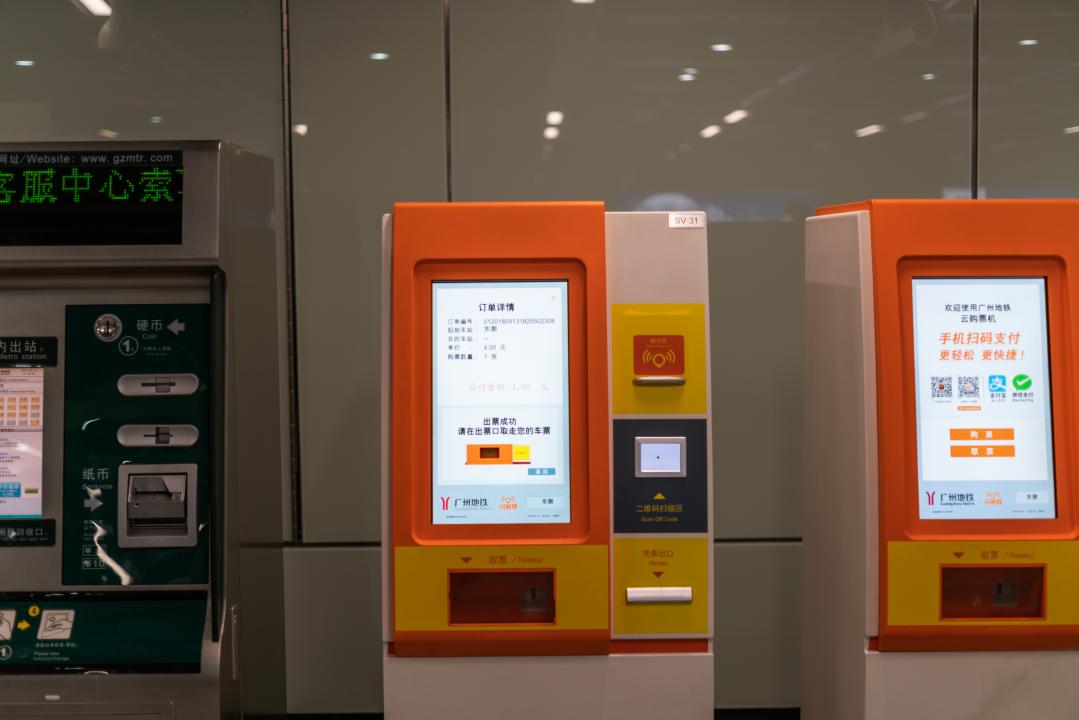
Would you say that train stations and those functions of obtaining tickets do you see eventually as services turning into more cashless than ever before?
Yes, there is going to be opportunity for re thinking about the way smart ticketing works, passengers really just want to tap in and tap out. It is really important that as an industry we focus on the needs of the customer and on the changing habits of society in a modern world.
Tap and go is definitely the right way to grow the rail market. We see that in London all the time don't we, when you turn up for the tube or for buses, you can just tap and go across the network. That is something that we absolutely advocate and want to see rolled out across the North’s rail network, that seamless way of travelling is central in delivering a fit-for-purpose system for passengers.




